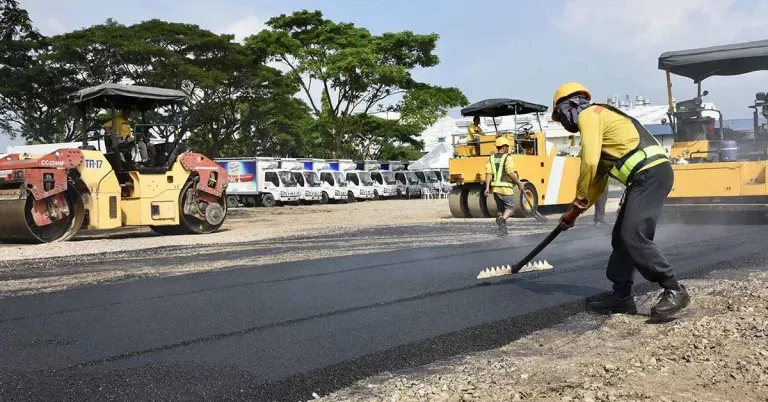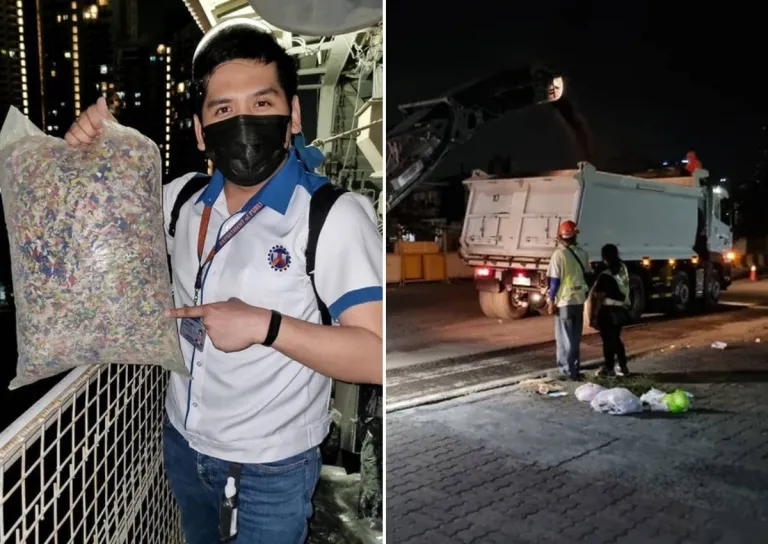Our favourite places to stay on this sleepy Cebu island.
DPWH Approves Plastic Roads in the Philippines

In a significant step toward sustainability, the Philippines is embracing innovation by incorporating plastic waste into road construction. The Department of Public Works and Highways (DPWH) has officially approved the use of plastic waste in asphalt mixes, opening up a path for greener infrastructure. This practice, known as "plastic roads," not only addresses the country's waste management problem but also contributes to more durable roads. With this approval, the DPWH is looking to make plastic roads a standard practice in the country’s infrastructure projects.
Also read: Metro Manila Traffic Eases as EDSA-Kamuning Flyover Reopens
What we know about the DPWH plastic roads project

Under Department Order No. 139, Series of 2024, the DPWH has set specific standards for using plastic waste in road construction. This greenlight comes after years of research and testing led by Neilsen Campit, a Research and Development Engineer from DPWH’s Bureau of Research and Standards (BRS). Campit began exploring the potential of plastic roads in 2018 after completing his Masters in Environment and Sustainability from Australia’s Monash University, as part of the Australia Awards scholarship program.
Campit’s Re-Entry Action Plan (REAP) focused on reducing plastic waste by integrating it into road construction. Inspired by similar projects in India, he saw an opportunity to apply this concept in the Philippines. After years of research, laboratory tests on the plastic-asphalt mix passed in 2019, paving the way for real-world trials.
Details on the project
Two pilot projects have already been successfully implemented. In January 2020, a 149-metre stretch of Taft Avenue in Ermita, Manila, was paved with asphalt mixed with 750 kilograms of plastic waste. A second project followed in 2021, where 162 metres of President Quirino Avenue in Paco, Manila, were paved using 850 kilograms of plastic waste. In these trials, 3.8 kilograms of plastic waste were used for every metric ton of asphalt mix, demonstrating the potential to significantly reduce plastic waste.
While these initial projects have been successful, the DPWH has yet to roll out plastic roads nationwide. However, the specification is now available for national, provincial, and local governments to adopt. This breakthrough in road construction represents a promising future for both sustainability and infrastructure in the Philippines.
Also read: Beat the Traffic: NALEX-SALEX Construction on the Way!
Collaborators on this project include the South Manila District Engineering Office, Readycon Trading and Construction Corporation, and Pilotage Trading and Construction Inc., the supplier of the plastic waste. With the foundations now set, plastic roads could soon become a common sight across the country, turning waste into a valuable resource for building a greener future.
All image credit goes to Neilsen Campit
Published at
About Author
Anne Mercado
Subscribe our Newsletter
Get our weekly tips and travel news!
Recommended Articles
10 Bantayan Island Resorts, Hotels, and Rentals for Your Tropical Escape 14 Best Credit Cards for Travel in the Philippines The only plastic we need for travel.
10 Best Mountain Cafes in the Philippines for Your Peak Coffee Experience Coffee date on the mountains, anyone?
10 Family Outing Ideas in Metro Manila Under ₱500 Looking for a weekend bonding with the family under ₱500? Head to these places, pronto!
10 Fun Things to Do in Manila Alone Live your best life in Manila, even when you’re riding solo.
Latest Articles
Dingalan Travel Guide: Nature Spots to Discover Now Underrated coastal gem in Aurora
What to Eat in Bicol: Iconic Dishes and Treats, and Unique Pasalubong You’ll Love Spice up your foodie adventure with iconic Bicol dishes and must-try pasalubong!
Top Travel Trends in the Philippines for 2025 New spots, tips, and trends
New UK Adventure Park to Visit in Devon and Cornwall Fun countryside escape near London
Ultimate Camarines Norte Travel Guide: Waterfalls, Beaches, and More From surfing to secret waterfalls, Camarines Norte is your next escape!

